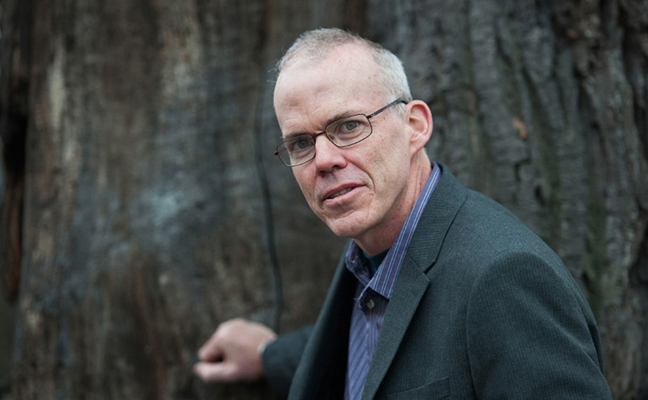The following is an extract from a High Profiles interview of Bill McKibben. You can read the whole interview by subscribing here.
Bill McKibben made his name as an environmentalist in 1989 with his ground-breaking ‘righteous jeremiad’ The End of Nature. Nineteen years later, an ‘unlikely activist’, he founded the global pressure group 350.org with seven of his students. He will be with us at Greenbelt Festival this year.
Huw Spanner spoke to him over the internet on 22 June 2016.
Do you see climate change as essentially a spiritual battle?
Well, it depends on your definition of ‘spiritual’, I guess. If your commitment is to love your neighbour in practice, then yes, very much so.
It’s been one part of my work – not the main part, but an important part – to help in the process of nurturing and building a religious and spiritual environmentalism. It didn’t exist a quarter century ago but now, as of (I’d say) last summer, when Pope Francis published his encyclical Laudato Si, it is deeply embedded in our spiritual consciousness.
Which faith communities have you found most responsive to your message?
We’ve done a lot – a lot – of good organising across the Muslim world and in Hindu India; and certainly the Dalai Lama and institutionalised Buddhism were early an important part of this fight.
Maybe the very first community to really step up in a big way was the Orthodox Christian community. The most important person in that world was and is Bartholomew [I], the patriarch of the [Eastern] Orthodox Church, who comes out of the Greek tradition but resides, like all his predecessors, in Istanbul. He was already involved in a variety of environmental endeavours when we formed 350.org, and as we were getting ready for our first big global day of action he gave a sermon in which he said: ‘Global warming is a sin, and 350 is an act of redemption.’
Those were strong words and they have helped us a lot across that large swathe of the world where 400 million Eastern Christians reside.
What particular spiritual themes or theological ideas have proved potent for other faiths that have been responsive?
There is a strong Jewish environmental movement rooted powerfully in the Genesis message around stewardship. That influences the whole Christian tradition, but there’s also the strong gospel orientation around care for the needy. Islam is pretty interesting on the question of hyperindividualism versus thinking about society.
The particular Catholic innovation, I think, and the one that’s powerful in Laudato Si, is the more thoroughgoing critique of modernity and the understanding that the problem we have goes deeper than climate change, that climate change is a manifestation of a world that’s disordered in many ways.
One thing that’s been very remarkable in the last few years is to watch the dramatic emergence of indigenous political and spiritual resistance. I think it may be the most important part of the kind of activist coalition that’s emerged around climate change and fossil-fuel extraction in the last five or six years. You know, those are the deepest and oldest spiritual traditions that we have and I’m very glad to see them coming to the forefront in this work.
© 2016 High Profiles
Photo credit: Wolfgang Schmidt/Right Livelihood Award


